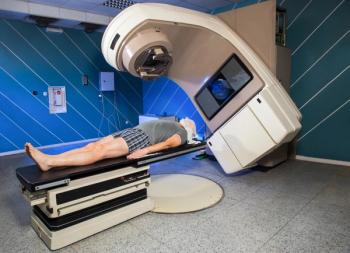
This study suggested that the racial composition of clinical trials involving radiation therapy does not match that of the overall US population.

Your AI-Trained Oncology Knowledge Connection!


This study suggested that the racial composition of clinical trials involving radiation therapy does not match that of the overall US population.
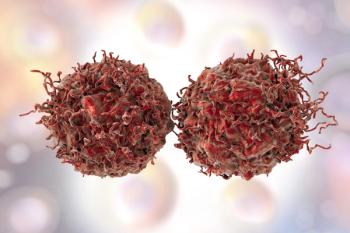
A study presented at the ASTRO Annual Meeting found that adding the advanced PET radiotracer fluciclovine (Axumin) to conventional imaging for patients with recurrent prostate cancer may improve disease-free survival rates.

“Sexual dysfunction is an unfortunately common side effect of cancer treatment, and there appears to be a large gender disparity in how physicians discuss sexual health with their patients,” said lead study author James Taylor, MD, MPH.

Researchers found there has been a 17% growth in radiation therapy facilities over the last 15 years, with expansion specifically improving for those who already live near such facilities.

The leukemia expert spoke about the importance of genetic testing for patients with acute myeloid leukemia and other important considerations for this patient population throughout the pandemic.

The phase 3 SEAL study evaluating single agent, oral selinexor (Xpovio) versus matching placebo in patients with advanced unresectable dedifferentiated liposarcoma met its primary end point of a statistically significant increase in progression-free survival.

This study indicated that patients with up to 3 lung metastases from primary tumors in other sites who were treated with stereotactic body radiation therapy fared comparably well whether their radiation was delivered in 1 or 4 treatment sessions.

The FDA has lifted the clinical hold on the phase 1 study of P-PSMA-101 in patients with metastatic castration-resistant prostate cancer.

The DESTINY-Breast05 trial will investigate fam-trastuzumab deruxtecan-nxki (Enhertu) versus ado-trastuzumab emtansine (T-DM1) as adjuvant therapy in patients with HER2-positive early breast cancer who have a high risk of disease recurrence and residual invasive disease in the breast or axillary lymph nodes after receiving neoadjuvant therapy.

A series of studies indicated that genetic alterations in the BRCA2, PALB2, and ATM genes are associated with prostate cancer risk in men that have a strong family history of prostate cancer and also increases their risk of an aggressive form of the disease.

This study found that fragment analysis had the ability to detect large MET exon 14 skipping deletions that were missed by next-generation sequencing in non-small cell lung cancer tumor samples.
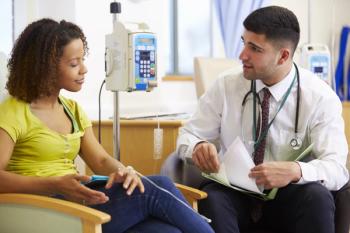
This study found that Black patients with extensive-stage small cell lung cancer were less likely to receive chemotherapy, as were elderly, uninsured, and those with non-private insurance.

A study revealed that the way data is collected regarding women with benign breast diseases can provide insight into which non-cancerous disorders are likely to become cancerous in the future.

This 20-year analysis suggested that weight loss surgery significantly decreases the risk of developing pancreatic cancer in individuals who are obese with diabetes.

First-line cabozantinib was found to provide longer quality-adjusted time without symptoms of disease or toxicity of treatment (Q-TWiST) in patients with advanced renal cell carcinoma when compared with sunitinib.

Stereotactic body radiotherapy may be superior to conventional palliative radiotherapy in improving the complete response rate for pain related to spinal metastases at 3- and 6-months post-radiation.

When compared with whole brain radiation therapy, researchers discovered highly focused radiation therapy led to less cognitive decline while simultaneously delivering equivalent overall survival rates.

Venetoclax was granted approval in combination with azacitidine, decitabine, or low dose cytarabine earlier this month for adults 75 years or older with newly diagnosed acute myeloid leukemia or those who have comorbidities precluding intensive induction chemotherapy.
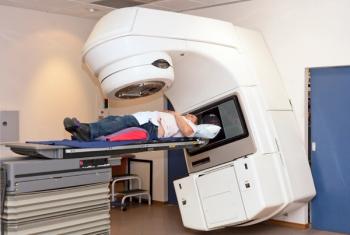
The updated guidelines outlined indications and best practices for pelvic radiation treatments, as well as the integration of radiation with chemotherapy and surgery for patients with stage II to III disease.

This study found that the impact of COVID-19 on cancer care in the US has led to decreases and delays in identifying new cancers, as well as the delivery of treatment.

The FDA approved expanded claims for the cobas EGFR Mutation Test v2 as a companion diagnostic for a broader group of therapies in the treatment of non-small cell lung cancer.
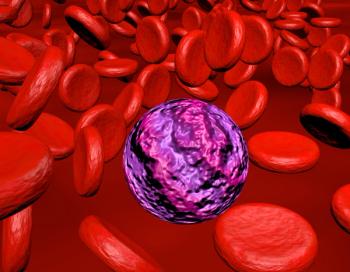
Patients who participated in the Beat AML Master clinical trial were found to have superior outcomes with precision medicine, compared to patients with acute myeloid leukemia who opted for standard chemotherapy treatment.

A study led by Jefferson researchers found that not all patients, specifically African American patients and women without private insurance, receive the same breast cancer treatment, specifically the beneficial and more cost-effective hypofractionated whole breast radiation therapy.

“Our findings suggest that distinct genetic alterations in the prostate cancers of African American men, in comparison to white men, may contribute to more aggressive prostate cancer and could lead to a higher mortality rate,” said study senior author Jianfeng Xu, DrPH.

The FDA granted priority review to the supplemental biologics license application for cemiplimab-rwlc (Libtayo) as a first-line treatment for patients with locally advanced or metastatic non-small cell lung cancer with 50% or more PD-L1 expression.

CancerNetwork® will be hosting a tweet chat that will feature mock tumor board on prostate cancer this Friday, October 30th, at 12 PM EST.

According to researchers, these findings “support the hypothesis that regional nodal disease may precede and contribute to the seeding of distant foci.”

For the first time, the draft recommendations from the US Preventive Services Task Force indicate that screening for colorectal cancer begin at age 45.

The FDA granted priority review to the supplemental biologics license application for trastuzumab deruxtecan (Enhertu) for the treatment of patients with HER2-positive metastatic gastric or gastroesophageal junction adenocarcinoma.

The newest episode of Oncology Peer Review On-The-Go speaks with 2 authors of an article from the October Issue of the journal ONCOLOGY focusing on effective cancer care management during the coronavirus pandemic.